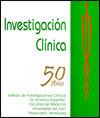SARS-CoV-2:潜在的经口传播及其对委内瑞拉COVID-19传播和严重程度的影响本文着重
IF 0.1
4区 医学
Q4 MEDICINE, RESEARCH & EXPERIMENTAL
引用次数: 1
摘要
公认的严重急性呼吸系统综合征冠状病毒2型的人传人是通过呼吸道飞沫和接触受污染的表面。然而,该病毒的高传播性和新冠肺炎的症状模式表明,有可能出现其他形式的传播。越来越多的证据表明,严重急性呼吸系统综合征冠状病毒2型可能通过粪口途径传播。已知严重急性呼吸系统综合征冠状病毒2型会感染胃肠道上皮细胞,大量感染者有胃肠道症状。在新冠肺炎患者的粪便中检测到活病毒、病毒RNA和病毒RNA的长期脱落。该病毒已在几个国家的污水和地表水中发现。严重急性呼吸系统综合征冠状病毒2型可能通过粪口传播,这在低收入国家可能意义重大。高贫困水平以及卫生和其他公共服务的崩溃可能会增加委内瑞拉人比其他人口遭受新冠肺炎更具破坏性影响的风险。总之,严重急性呼吸系统综合征冠状病毒2型的粪口传播尚未得到证实。然而,这是可以想象的,新冠肺炎对低收入国家的影响可能很高,尤其是委内瑞拉的人道主义危机。缺乏关于病毒在废水和地表水中的生存能力和传染性以及感染传播风险的信息,是值得进一步调查的重要知识空白。本文章由计算机程序翻译,如有差异,请以英文原文为准。
SARS-CoV-2: Potential feco-oral transmission and implications on the spread and severity of COVID-19 in Venezuela. Mini-review
The recognized human-to-human transmission of SARS-CoV-2 is through respiratory droplets and contact with contaminated surfaces. However, the high transmissibility of the virus and the pattern of symptoms of COVID-19 suggest the likelihood of other forms of spread. Increasing evidence suggests that SARS‐CoV‐2 could be transmitted by the feco‐oral route. SARS-CoV-2 is known to infect gastrointestinal epithelial cells and a significant number of infected people have gastrointestinal symptoms. Viable viruses, viral RNA, and prolonged shedding of viral RNA have been detected in the feces of COVID-19 patients. The virus has been found in sewage and surface waters of several countries. The possible feco-oral transmission of SARS-CoV-2 could be significant in low-income countries. High poverty levels and the collapse of health and other public services might increase the risk of Venezuelans to suffer a more devastating impact from COVID-19 than other populations. In conclusion, the feco-oral transmission of SARS-CoV-2 has not been demonstrated. However, it is conceivable and the impact of COVID-19 could be high in low-income countries, especially in Venezuela due to its humanitarian crisis. The lack of information on the viability and infectivity of the virus in wastewaters and surface waters and the risk of transmission of the infection are important gaps in knowledge that deserve further investigation.
求助全文
通过发布文献求助,成功后即可免费获取论文全文。
去求助
来源期刊

Investigacion clinica
MEDICINE, RESEARCH & EXPERIMENTAL-
CiteScore
0.20
自引率
50.00%
发文量
2
审稿时长
>12 weeks
期刊介绍:
Estudios humanos, animales y de laboratorio relacionados con la investigación clínica y asuntos conexos.
 求助内容:
求助内容: 应助结果提醒方式:
应助结果提醒方式:


